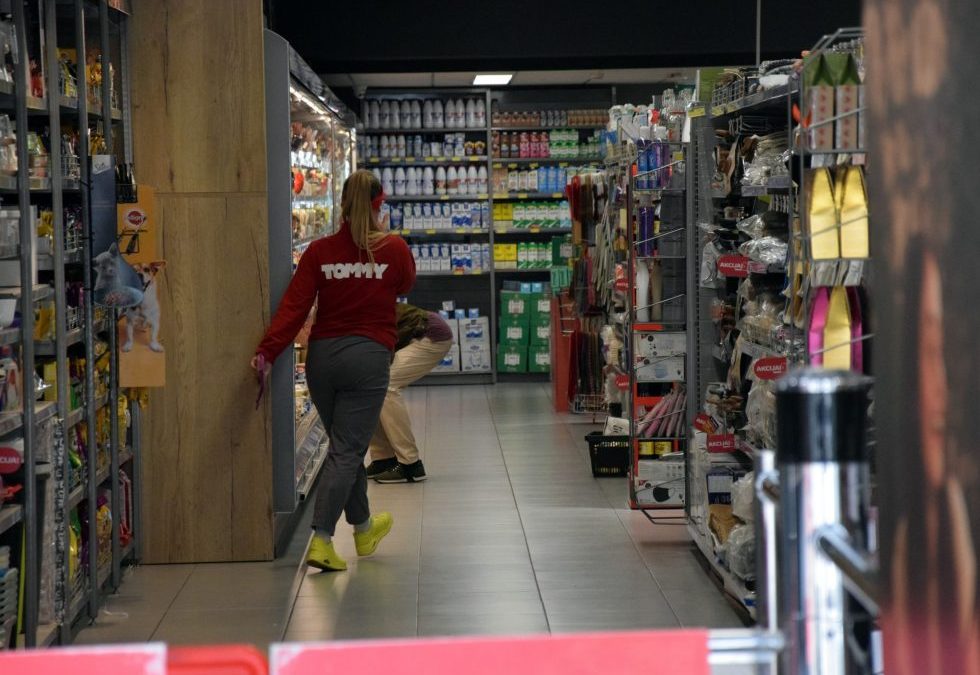It started in late January from Croatia: in recent weeks, a significant number of supermarket boycotts took place in the country as citizens expressed their frustration with rising prices, a frustration shared by citizens in other EU member states and in some of those wishing to join the European coalition.
The store boycott was started by a Facebook group called “Hello, Inspector” (“Halo, inspektore” in Croatian). The movement was supported by consumer protection organizations, labor unions, political parties, and even the Minister of Economy.
“Today we are boycotting everything again, from supermarkets to pharmacies, bakeries, cafes, and restaurants. Let’s not enter any store or hire any service,” said Josip Kelemen, an adviser to one of the Consumer Associations that organized the “Halo, inspektore” boycott.
Kelemen made this statement before the third round of Croatian boycotts on February 7. The initiative began with messages circulated on social media calling on citizens to refrain from all purchases. Since then, the movement has expanded in the Balkans region to Bosnia-Herzegovina, Montenegro, North Macedonia, Bulgaria, and Serbia.
Less bread in the basket
The problem is twofold—on the one hand, high prices are making it difficult for many consumers to make ends meet, and on the other hand, local producers say they cannot compete with large chains because imports are cheaper, and the prices paid to them do not cover production costs.
Economists explain the new wave of price increases in Croatia by citing, on one hand, the strong increase in personal consumption and overall domestic demand and, on the other hand, the limited increase in supply. Much of the increase in demand is generated by the state due to the large influx of European funds, convergence funds, and funds for recovery from the pandemic.
The cost of living is rising across the EU as wages do not keep up with rising food prices.
Spread of boycotts
Consumers in EU candidate countries Bosnia-Herzegovina, Serbia, North Macedonia, and Montenegro have also caught the boycott fever.
Citizens in Bosnia-Herzegovina are increasingly feeling the pressure from rising prices—the standard of living is falling as wages do not keep up with the rising cost of living. To reverse this trend, the informal organization “Bojcot u BiH” (BiH is the acronym for Bosnia-Herzegovina) called for a boycott of major retail chains on February 7 and 8 through social media. Their turnover decreased on both days.
On January 31 and February 7, supermarkets in North Macedonia were half-empty as people did their shopping at street markets and neighborhood shops or did not shop at all. Citizens supported the campaign, although they expressed doubts about whether a one-day boycott can solve problems, highlighting that prices keep rising while wages remain stagnant. Before the boycott, some retail stores announced discounts and benefits for consumers while blaming their suppliers for price hikes.
The Serbian consumer organization “Efektiva” called consumers for a one-day boycott of retail chains on January 31, reminding that last October, the Competition Protection Commission started proceedings against four retail chains suspected of arbitrary pricing. It also announced a new boycott with the motto “Do you want to be robbed or not?”. From February 10, five major retail chains were to be boycott targets for five days.
Boycotts occurred in neighboring Montenegro on January 31 and February 7-8. “Every day we witness unprecedented increases in the prices of basic goods, while the owners of large chains accumulate profits at the expense of the people. It is time to say: enough!” wrote the organization “Alternative Montenegro” on social media.
The action was supported by Prime Minister Milojko Spajić, some NGOs, and unions, while the Montenegrin Chamber of Commerce and Consumer Association opposed it.
The idea is spreading to Bulgaria, where four organizations called today for a boycott of retail chains and grocery stores, according to Velizar Entchev, initiative coordinator and former Bulgarian ambassador to Croatia.
So far, this movement has not affected Albania and Slovenia, while Romanians are undecided.
Romanians were called by some politicians to boycott supermarkets for one day, arguing that they do not sell Romanian products. Meanwhile, Agriculture Minister Florin-Ionuț Bârbă stated that he believes such a boycott would mean “the bankruptcy of Romanian processing companies” as 70% of the products in retail stores in Romania are produced by Romanian food processing companies.
There has been no supermarket boycott in Albania despite sporadic calls on social media. Last year, the government increased public sector salaries, raised pensions, and this year reduced electricity prices. The increase in wages and pensions was not accompanied by a significant increase in supermarket prices.
There has been no organized boycott in Slovenian stores, although high food prices are a major issue in public discourse. According to the Statistical Service, food and non-alcoholic beverage prices stabilized in 2024 after a period of increases. Nevertheless, shopping centers in Slovenian cities along the Croatian border reported an increase in customers during the Croatian boycott. Consumers from Croatia say that food and cleaning products are much cheaper in Slovenia. Meanwhile, Slovenian consumers are again increasingly going to neighboring Italy for cheaper shopping.
 go to the original language article
go to the original language article
